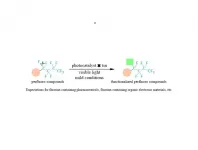(Press-News.org) One-quarter of people who take the drug methotrexate for common immune system disorders -- from rheumatoid arthritis to multiple sclerosis -- mount a weaker immune response to a COVID-19 vaccine, a new study shows.
Published (online May 25) recently in Annals of the Rheumatic Diseases, the study addressed disorders that result when the immune system, meant to fight disease and drive healing, is triggered abnormally. This in turn causes inflammation, the pain and swelling that come as immune cells rush into damaged or infected tissue, but often in the wrong amount or context. Called immune-mediated inflammatory disorders, they are typically treated with drugs that reduce inflammation, including methotrexate.
Led by researchers at NYU Grossman School of Medicine, the new study looked specifically at patients' responses to the Pfizer-BioNTech mRNA COVID-19 vaccine, which they measured by looking at the antibodies produced in each patient by the vaccine. Once injected into the body, vaccine ingredients are meant to trigger the production of antibodies, immune proteins that specifically glom onto this viral target protein, disabling it and tagging it for removal from the body.
The lower antibody response in patients who take methotrexate does not necessarily mean that these patients are not protected against COVID-19, cautions co-first study author Rebecca Haberman, MD, clinical instructor in the Department of Medicine at NYU Langone Health.
"It is most important to state that patients should not be concerned about our study findings as the majority of patients with immune system disorders are responding well to the mRNA vaccines," Dr. Haberman says. "It is also possible that methotrexate is delaying, rather than preventing, an adequate immune response against COVID-19."
Researchers have known that rheumatoid arthritis patients who take methotrexate have a reduced response to seasonal flu vaccines. Because mRNA vaccines use a new mechanism of action that patients with these common immune disorders have not seen before, the researchers wanted to determine how well these patients are protected.
The research was conducted at NYU Langone and at Friedrich-Alexander University Erlangen Nuremberg in Germany and enrolled healthy people and patients treated for common immune-mediated disorders, including rheumatoid arthritis, psoriatic arthritis and psoriasis. Study participants received two doses of Pfizer-BioNTech mRNA COVID-19 vaccine. The researchers analyzed blood samples to determine the amount of antibodies patients produced after receiving the vaccine and measured the activation of key immune system cells, including CD8 killer T cells, which are generated as part of the body's immune response.
The researchers found that over 90 percent of healthy subjects and patients taking drugs other than methotrexate to control inflammation in both the New York and German study groups mounted strong antibody responses. Patients with immune-mediated inflammatory disorders who were taking methotrexate achieved an adequate response in only 62 percent of cases. Similarly, while healthy patients and those with common immune disorders who were taking anti-inflammatory drugs other than methotrexate produced CD8 T cells, patients taking methotrexate did not show an increase in CD8 T cell activation after vaccination.
"More research is needed to understand why such a significant proportion of people with common immune disorders who take methotrexate have deficiencies in mounting an antibody and cellular response," says study co-senior author Jose U. Scher, MD, an associate professor in the Department of Medicine at NYU Langone. "This may not necessarily mean that the vaccine is not efficacious, but that alternate vaccine strategies need to be investigated."
These alternate vaccine strategies include potentially discontinuing methotrexate during the time these patients receive the vaccine, changing the dosage of methotrexate or possibly administering a booster shot to the vaccine, says Dr. Scher, who is also director of the Psoriatic Arthritis Center at NYU Langone. The research team is currently leading studies to determine the best course of action for these patients.
INFORMATION:
This work was supported by National Institutes of Health grants R01 AR074500, T32 AR069515, and UM1 AI148574; a Rheumatology Research Foundation Scientist Development Award; the Bloomberg Philanthropies COVID-19 Initiative; the Pfizer COVID-19 Competitive Grant Program; The Beatrice Snyder Foundation; and The Riley Family Foundation.
Dr. Scher has served as a consultant for Janssen, Novartis, Pfizer, Bristol Myers Squibb, Sanofi and UCB, and Abbvie, and he has received funding for investigator-initiated studies from Novartis, Sanofi, Pfizer and Janssen. Dr. Haberman has received consulting fees from Janssen. Study co-investigators Peter M. Izmirly, MD, has received consulting fees from GSK and Momenta/Janssen; and Steven B. Abramson, MD, has received grants from Johnson and Johnson. Study co-corresponding author Mark J. Mulligan, MD, has received grants from Eli Lilly, Pfizer, and Sanofi and personal fees from Meissa Vaccines. All of these relationships are being managed in accordance with the policies and procedures of NYU Langone.
In addition to Drs. Scher, Haberman, Izmirly, Abramson, and Mulligan, other NYU Langone investigators are co-first authors Ramin Herati, MD, and Marie Samanovic-Golden, MD; and study co-investigators Rebecca B. Blank, MD, PhD; Michael Tuen, PhD; Sergei B. Koralov, PhD; Joseph R. Allen; Rochelle L. Castillo, MD; Amber R. Cornelius; Paula Rackoff, MD; Gary E. Solomon, MD; Samrachana Adhikari, PhD; Natalie E. Azar, MD; Pamela Rosenthal, MD; Jonathan Samuels, MD; Brian D. Golden, MD; and Soumya M. Reddy, MD. Other researchers involved in the study are co-corresponding author Georg Schett, MD, PhD; co-first author David Simon, MD; and study co-investigators Raja Atreya, MD; Koray Tascilar, MD; and Markus Neurath, MD, at Friedrich-Alexander University Erlangen Nuremberg.
Media Inquiries:
David March
212-404-3528
david.march@nyulangone.org
LINK TO ARTICLE
http://dx.doi.org/10.1136/annrheumdis-2021-220597
The pollution of the world's oceans with plastic waste is one of the major environmental problems of our time. However, very little is known about how much plastic is distributed globally in the ocean. Models based on ocean currents have so far suggested that the plastic mainly collects in large ocean gyres. Now, researchers at the University of Bern have calculated the distribution of plastic waste on a global scale while taking into account the fact that plastic can get beached. In their study, which has just been published in the "Environmental Research Letters" scientific journal, ...
Zebrafish exposed to the leading cannabinoids found in cannabis in the earliest stages of development suffer a significant drop in neural activity later in life, according to a University of Alberta study that has implications for prenatal development in humans.
Richard Kanyo, the lead author on the study and post-doctoral fellow in the Faculty of Medicine & Dentistry, said despite the popular narrative that the health benefits of cannabis are many, it turns out there is a surprisingly large knowledge gap.
"Once the legalization happened, people got really excited about it and there's a lot of bias in the media about positive ...
The number of specialty behavioral health establishments, their workforce and their wages have increased steadily between 2011 and 2019, according to a new study by Indiana University and University of Michigan researchers.
The largest increases were found in the number of outpatient establishments and the size of their workforce, as well as an increase in the average wage at residential health establishments.
Researchers say while these increases are important in closing the gaps in needed treatment, more work needs to be done to increase behavioral health workforce deficits, especially in areas with an elevated drug overdose mortality rate.
At ...
By Karina Toledo | Agência FAPESP - The novel coronavirus is transmitted mainly via inhalation of saliva droplets or respiratory secretions suspended in air, so that face covering and social distancing are the most effective ways to prevent COVID-19 until enough vaccines are available for all. In Brazil, fabric masks are among the most widely used because they are cheap, reusable and available in several colors or designs. However, this type of face covering's capacity to filter aerosol particles of a size equivalent to the novel coronavirus can vary between 15% and 70%, according to a study conducted in Brazil by the University of São Paulo (USP).
The study was supported by FAPESP, and the principal investigator was Paulo Artaxo, a professor in the university's ...
(10 a.m. EDT, June 2, 2021--Denver) - New research published in the Journal of Thoracic Oncology (JTO) suggests the method used to calculate how obesity is measured may affect whether it is considered a risk factor for lung cancer. The JTO is an official journal of the International Association for the Study of Lung Cancer.
Although the association between measures of obesity and both cancer incidence and outcome are clear in some solid tumor types such as breast, esophageal, and colon cancer, the relationship between obesity and lung cancer is more nuanced.
Now, a group of researchers led by Sai Yendamuri, M,D, from Rosewell Comprehensive ...
Fluorinated compounds are an important group of compounds that are widely used in pharmaceuticals, agricultural chemicals, functional resins, and organic electronic materials. In particular, perfluorinated compounds with multiple carbon-fluorine bonds are attracting attention because of their high thermal and chemical stability and various excellent properties such as water and oil repellency and chemical resistance.
"C-F bonds are extremely strong; hence, their transformation under mild conditions is difficult, and the selective activation of a specific C-F bond from among multiple C-F bonds in perfluorinated compounds has not been achieved," explains Prof. Makoto Yasuda, corresponding author of the study.
The research team led by Prof. Makoto Yasuda has discovered ...
What makes cheetah the fastest land mammal? Why aren't other animals, such as horses, as fast? While we haven't yet figured out why, we have some idea about how--cheetahs, as it turns out, make use of a "galloping" gait at their fastest speeds, involving two different types of "flight": one with the forelimbs and hind limbs beneath their body following a forelimb liftoff, called "gathered flight," while another with the forelimbs and hind limbs stretched out after a hind limb liftoff, called "extended flight" (see Figure 1). Of these, the extended flight is what enables cheetahs to accelerate to high ...
Developing vaccines against bacteria is in many cases much more difficult than vaccines against viruses. Like virtually all pathogens, bacteria are able to sidestep a vaccine's effectiveness by modifying their genes. For many pathogens, such genetic adaptations under selective pressure from vaccination will cause their virulence or fitness to decrease. This lets the pathogens escape the effects of vaccination, but at the price of becoming less transmissible or causing less damage. Some pathogens, however, including many bacteria, are extremely good at changing in ways that allow them to escape the effects of vaccination while remaining highly ...
The white-tailed sea eagle is known for reacting sensitively to human disturbances. Forestry and agricultural activities are therefore restricted in the immediate vicinity of the nests. However, these seasonal protection periods are too short in the German federal States of Brandenburg (until August 31) and Mecklenburg-Western Pomerania (until July 31), as a new scientific analysis by a team of scientists from the Leibniz Institute for Zoo and Wildlife Research (Leibniz-IZW) suggests. Using detailed movement data of 24 juvenile white-tailed sea eagles with GPS transmitters, they were able to track when they fledge and when they leave the parental territory: on average, a good 10 and ...
Materials have a variety of properties that can be used to solve computational problems, according to studies in substrate-based computing. BZ computers, slime mould computers, plant computers, and collision-based liquid marbles computers are just a few examples of prototypes produced for future and emergent computing devices. Modelling the computational processes that exist in such systems, however, is a difficult task in general, and determining which part of the embodied system is doing the computation is still somewhat ill-defined.
Claiming that fungi are the most intelligent living organisms in the world sounds like an exaggeration. However, a recent study by Mohammad Mahdi Dehshibi, a UOC researcher who is contributing to a growing body of knowledge on the use of fungal materials, ...




